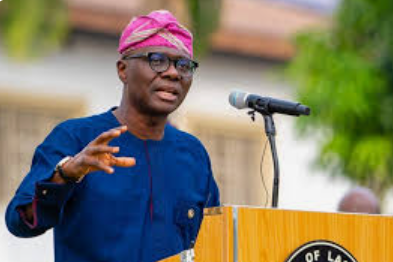The Lagos State Ministry of Innovation, Science and Technology has intensified efforts to institutionalise a legal framework for the state’s innovation ecosystem, unveiling a refined draft of the Lagos Innovation Bill during a high-level stakeholder engagement session held at the Marriott Hotel in Ikeja.
The engagement, which took place recently, brought together a cross-section of leaders from the technology, startup, research, and academic communities as part of the state’s ongoing commitment to a participatory and inclusive policy development process.
The bill aims to serve as a foundational piece of legislation that will drive innovation from the grassroots level to universities, startups, and research and development institutions.
Commissioner for Innovation, Science and Technology, Olatunbosun Alake, who delivered the keynote presentation, said the bill is designed to provide a comprehensive, Lagos-specific framework for innovation development, complementing the Nigeria Startup Act at the federal level.
“This bill goes beyond startups,” Alake explained in a statement to The PUNCH on Tuesday.
“It covers knowledge institutions, research and development, digital infrastructure, innovation funding, and the legal frameworks to protect ideas and attract investment. It is our attempt to design a Lagos-specific framework that can scale innovation and institutionalise progress.”
According to him, Lagos must transition from scattered innovation initiatives to a structured and intentional model that turns ideas into inventions, startups, and ultimately globally competitive businesses.
He said, “If we are serious about building an innovation economy, then we must create systems that allow ideas to become inventions, inventions to become startups, and startups to scale into global businesses. That pipeline must be enabled by law.”
Alake further emphasised that the bill is crafted to catalyse inclusive growth by ensuring innovation is not restricted to elite tech enclaves but reaches under-represented communities across the state.
“If innovation is to be meaningful, it must be democratised,” he said. “That means providing access, funding, training, and regulatory support to everyone from the university researcher in Epe to the agritech startup in Ikorodu. That’s what this bill aims to do.”
Earlier in her welcome address, Permanent Secretary of the Ministry, Engineer Ibilola Kasunmu, stressed the importance of stakeholder input in shaping effective innovation policy.
“This session is not just about telling you what the bill says. It is about asking you, “Does this work for your context?” Will this structure enable innovation, or will it stifle it?” she said.
“We believe policy must be driven by those who live in the ecosystem. You are the people who understand the bottlenecks, the regulatory frictions, and the investment gaps. That’s why we are here not just to talk, but to listen, learn, and improve.”
Kasunmu said the bill is intended to support Lagos’ ambition to become Africa’s leading innovation capital by creating a legal framework that nurtures entrepreneurship, protects intellectual property, and facilitates investment across sectors.
Delivering a goodwill message at the event, founder of Tech for Tech, Joel Ogunshola, praised the Lagos State Government for what he described as a “visionary and timely” initiative.
“What Lagos is trying to do with this bill is not to reinvent the wheel,” Ogunshola said. “Rather, it is to customise the wheel so that it actually works on our roads. This is not just a tech bill; it is an economic growth framework. It’s about unlocking prosperity, innovation, and talent at a scale we’ve never seen before.”
He highlighted the limitations of national policies that often overlook sub-national dynamics, adding that Lagos’ approach fills a crucial gap by aligning policy with local realities.
The engagement also featured a detailed walkthrough of the bill’s key provisions by the legal adviser to the ministry, Alex Adedipe. Stakeholders were then divided into breakout groups to review specific sections of the draft and offer feedback, which was later presented in a plenary session.
Closing the event, Special Adviser to the Governor on Broadband and Technology, Ganiyu Oseni, expressed the state government’s gratitude for the quality of contributions received and assured attendees of further consultations as the bill progresses towards legislative review.
He said, “We remain committed to an open, inclusive process. The insights we’ve gathered here will shape the final draft of the bill, ensuring it reflects the collective wisdom of the ecosystem it is meant to serve.”















